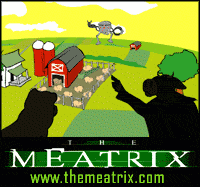
|
| Home | Reading Room | Newsletter | Reminders | Technique | Nursery |
| News | Sustainable Gardening | Trees & Shrubs | Flowers | Composting | Soil |
| Shopping | Tools | Books | How To's | Practical Advice | Children | IPM |
Home
Perfect SoilThere are many variables that affect soilWhat is the function of soil in our yards and gardens? Simply put, soil provides plants with mineral nutrients, water and anchorage. There are so many variables that affect soil that your yard may have a different soil type than the one across the street. The basic types of soil are clay, sand, and silt. The percentage of each determines whether you have sandy clay loam, silt, loam, etc. Some soil properties that are influenced by the texture of soil include aeration, drainage, water holding capacity and temperature. For example, sandy soil has excellent aeration, warms quickly in spring and has a low water-holding capacity. The exact opposite is true for clay. It has poor aeration, warms slowly, and has high water-holding capacity. Here are the four major components of soil:
However, what we do to improve our corner of the world will affect our plants. You can re-mineralize your soil by adding Glacial Rock Dust or Greensand. You can increase organic matter by adding a good organic compost. This also increases earthworm activity and beneficial bacterial growth. Naturally, some soil needs more work than others, but with a little work and some good organic products, you can pretend that your soil is perfect! Try Earthworm Castings or Chicken Manure to promote the natural activity of beneficial microorganisms in your soil. |
| Reading Room | Trees and Shrubs | Flowers | Composting | Soil | Nursery |
| Shopping | Books | Tools | News | Internet Gardening | Links | Support |
| Vermicomposting | Pest Management | How To's | Practical Advice | Children |
| Home | Newsletter | About Us | Support | Contact |
|
GardenSimply.com | All Rights Reserved 2005 |
|
FREE
Garden Journal!! Join "Garden Notes" and plan for Harvest
Success as you track and record your gardening progress. Your Free Personal
Garden Journal includes printable pages making it easy for you to:
|
|
|
|
|
|
|
|
|
|

|
|
|
|



